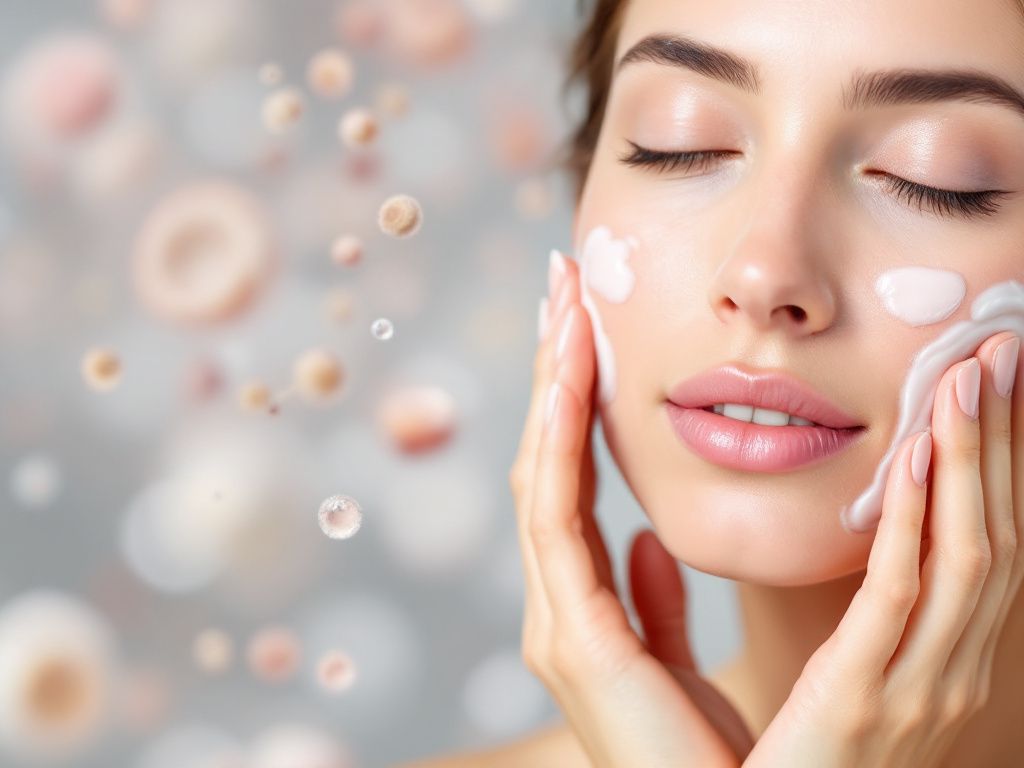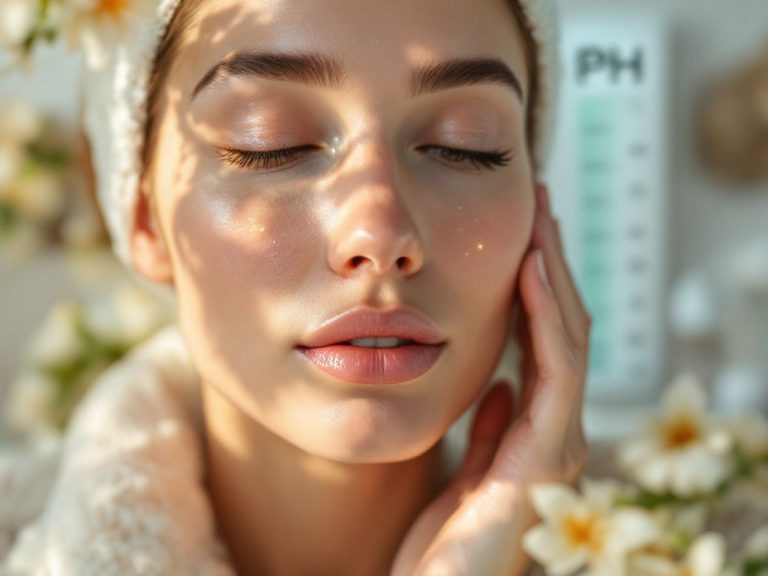Alright, let’s tackle this head-scratcher of a question that you might be pondering each time you spot those pesky pimples despite feeling like your skin is dry as a desert: **”Can dry skin cause acne?”** At first glance, it seems counterintuitive. We often hear about oily skin being the culprit behind acne. But believe it or not, dry skin can be a mischievous player in this scenario too.
Let’s dive deep, peel back those layers, and figure out what’s the deal with this unexpected relationship between dryness and those unwelcome breakouts. We’re going to unpack this mystery using a touch of scientific logic blended with a good dose of everyday experience.
Table of Contents
ToggleUnderstanding the Basics: Skin Science 101
First things first, a bit of basic **skin science** to set the foundation. Our skin, that loyal protective barrier, plays more roles than just making us look good. It’s also our frontline shield against bacteria and viruses. A balanced skin is typically well-hydrated, smooth, and properly functioning. Sounds like a dream, right?
When dryness sets in, the outer layer of the skin – the stratum corneum – starts losing its **moisture impact**. This loss triggers the skin’s defense mechanism. It’s like that friend who takes everything just a bit too seriously when an issue pops up. And what does it do? Yep, it kicks the oil production into overdrive. This is where the problem starts and relates to our big question.
The Moisture-Acne Connection
Now, you’re probably thinking, how on earth does something like dry skin, which seems more like a minor inconvenience, lead to acne? Here’s the scoop. When your skin loses moisture, not only does it react by producing more oil, but it also becomes less effective at shedding dead skin cells. These cells decide to hang out a little longer than necessary and end up clogging your pores.
Culprits and Consequences

Here’s a quick snapshot of how dry skin can lead to acne:
- Overactive Sebum Production
- As dryness ensues, oil glands get overzealous.
- Pore Blockage
- Excess oil and dead skin cells come together, leading to blockages.
- Bacterial Breeding Ground
- With pore blockage, bacteria find a cozy home.
- Inflammation
- Your skin becomes a battleground, and inflammation rears its head.
The Science Bit: Why It’s Crystal Clear
We can’t talk about this without taking a nod to what happens on a microscopic level. Experts suggest that the combination of clogged pores and increased oil creation fosters an environment for bacteria, specifically *Propionibacterium acnes*, to flourish and cause those red, stubborn spots.
So, What Should You Do?
Ah, action steps. Because understanding is just half the battle. Let’s talk solutions—because there’s no way we’re letting dry skin get the better of us. Here are some practical moves to help relieve dry skin and acne, backed by our understanding of **skin science**:
Hydration is Key

- Treat your skin like a plant—hydration is essential.
- Use a moisturizer immediately after washing your face to lock in that moisture.
- Opt for products containing hyaluronic acid or ceramides, which are great at retaining hydration.
Gentle Cleansing
- Use mild, alcohol-free cleansers to avoid stripping oils.
- Resist hot showers; lukewarm water is your friend.
Topical Treatments
- Consider the use of mild exfoliants. Look for those containing lactic acid or salicylic acid—these can help clear dead skin lovingly.
- Don’t overdo it though—once or twice a week is plenty.
Be Sun Smart
- Slap on some sunscreen daily. Dry skin isn’t great with sun, and its barrier needs all the help it can get.
- Pick a sunscreen that’s non-comedogenic (meaning it won’t block pores).
Mind Your Products
- Check that the skincare products you’re using are intended for your skin type.
- Be wary of ingredients like alcohol, strong fragrances, or harsh chemicals—they can be sneaky villains causing more dryness.
Common Pitfalls and Honest Mistakes

Let’s talk quickly about what not to do. Because mistakes? We all make them. Here’s a short list—a gentle reminder to avoid:
- Over-Exfoliating: Tempting as it is, those rough scrubs can do worse than good. Gentle is the way to go.
- Skipping Moisturizer: Feeling moisturized already might trick you, but routine is key.
- Ignoring Humidity: Using a humidifier during bone-dry season can surprisingly help.
- Skin-Smothering Makeup: Non-breathable foundations or powders can tourniquet your crosshair pores. Best avoid them.
In Conclusion
There you have it—the surprising yet somewhat logical route from dry skin to acne; a mind-boggling journey backed by science with a dash of practicality. Who knew the humble moisturizer could become your skin’s best ally in this battle against dryness-induced acne?
Remember, tailoring your skincare routine to provide that perfect blend of moisture and cleanliness can help you win the war. Yes, it’s an uphill climb. But, armed with this knowledge, you’ve got what it takes to keep your skin happy, healthy, and break-out free.
So next time you encounter a breakout, take a second look at the dryness. Trust me on this one, both moisture levels through hydration and keen attention to habits can create the small differences that lead to big wins. Your skin will thank you.
Frequently Asked Questions
Can Dry Skin Cause Acne?
Dry skin does not directly cause acne, but it can contribute to the development of acne. When skin is dry, it may produce more oil to compensate for the lack of moisture, leading to clogged pores and breakouts. Additionally, dry skin can cause redness and irritation, which can also lead to acne[1][2][4).
How Does Dry Skin Contribute to Acne?
Dry skin can trigger an excess production of sebum, which can clog pores and lead to acne. It can also cause an buildup of dead skin cells, making pores more likely to break open and allowing acne-causing bacteria to penetrate deeper into the skin. Furthermore, many acne treatments can exacerbate dry skin, creating a cycle of dryness and acne[1][3][4).
What is the Best Skincare Routine for Dry, Acne-Prone Skin?
A gentle yet effective skincare routine is crucial. This includes using a hydrating, non-comedogenic moisturizer, a gentle cleanser that does not strip the skin of its natural moisture, and treatments containing ingredients like salicylic acid, tea tree oil, and niacinamide. Avoid harsh products, exfoliate gently, and maintain good hydration practices[2][4][5).
How Can I Prevent Dry Skin and Acne Together?
To prevent both dry skin and acne, use gentle, fragrance-free products, moisturize regularly, especially after bathing or showering, and avoid abrasive or drying products. Using a humidifier to keep the air moist and drinking plenty of water can also help. It is important to consult a dermatologist if home remedies and over-the-counter treatments are not effective[4][5][1]).
References- Can Dry Skin Cause Acne? No, but It Can Increase Your Risk. GoodRx.
- Dry Skin And Acne: What You Need To Know. The INKEY List.
- Can Dry Skin Cause Acne? Dermatologist-Approved Treatments. Eternal Dermatology.
- Dry skin and acne: Treatments and home remedies. Medical News Today.
- 6 Ways to Help Treat Acne When You Also Have Dry Skin. Healthline.








